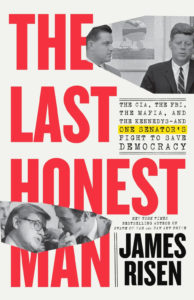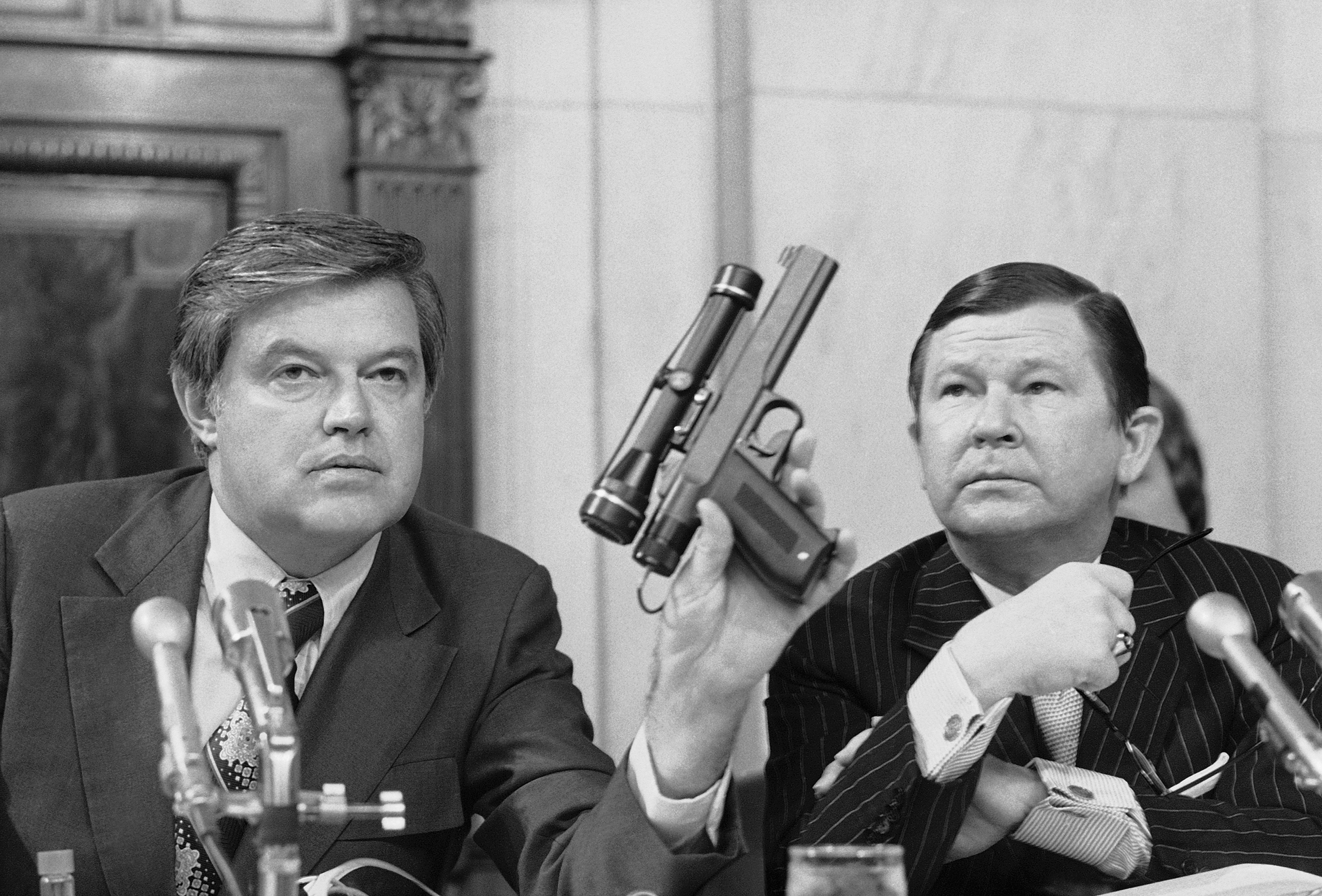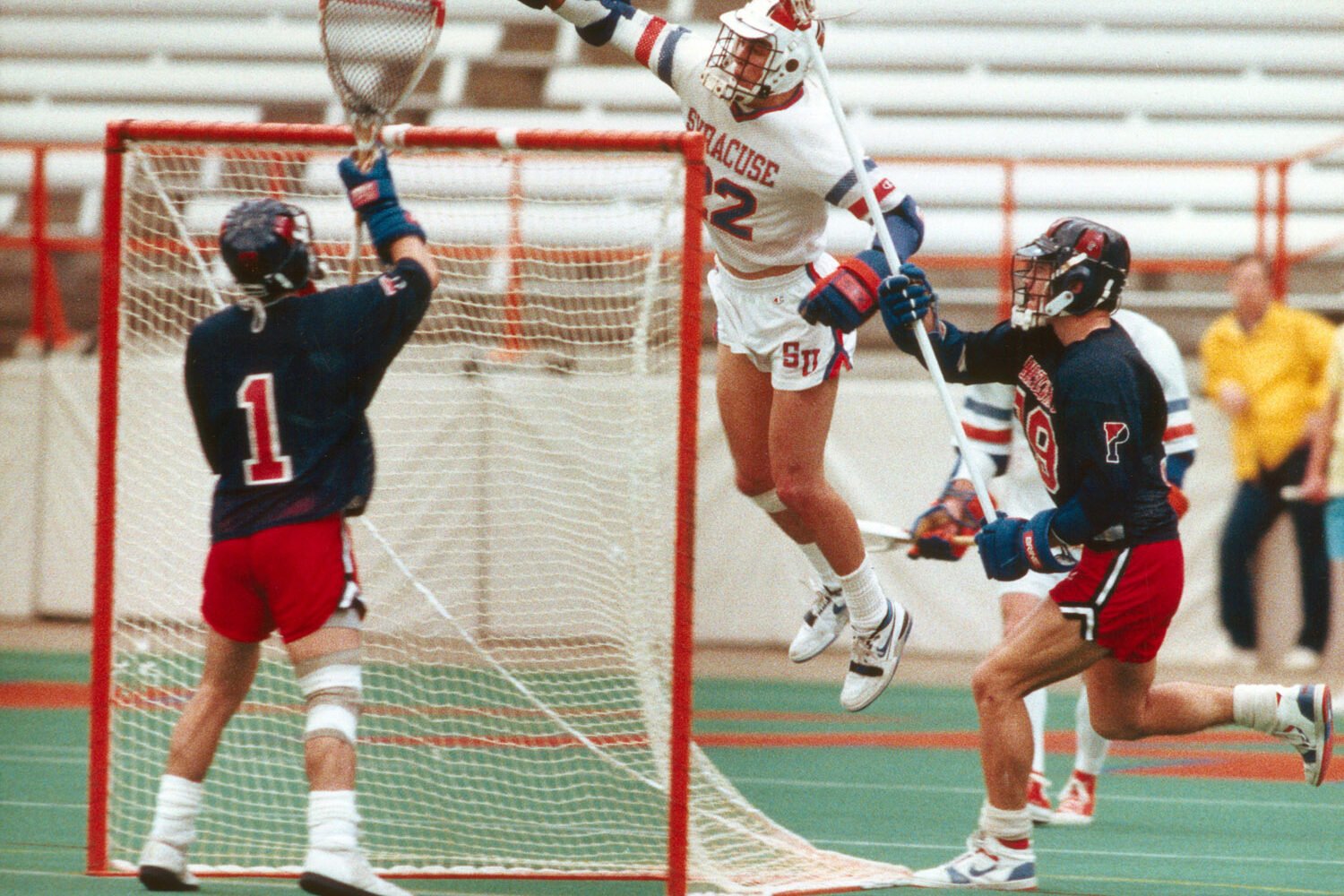Investigative reporter James Risen has been covering American intelligence agencies—the CIA and the NSA, among others—since the 1990s. Now he’s written The Last Honest Man, a biography of Frank Church, the late senator from Idaho who risked his career to bring those agencies to heel. In the mid-1970s, Church chaired the Senate’s first investigation into the American intelligence community, which uncovered astonishing abuses of power: plots to assassinate foreign leaders, warrantless surveillance of Americans, and the FBI’s harassment of Martin Luther King Jr., for example. The Church Committee’s work led to significant reforms.

Like Church, Risen has tangled with the intelligence community in the course of his investigations. In 2006, he won a Pulitzer Prize for revealing the existence of the NSA’s post-9/11 domestic-spying program, stirring a national civil-liberties firestorm. That same year, his book State of War enraged the US government by including the story of a bungled CIA operation against Iran. Prosecutors later opened a leak investigation into Risen’s source, believing that a former CIA officer had illegally provided him with classified information. (For seven years, Risen refused to reveal his source, and finally the government gave up.) We spoke with Risen—who lives in Montgomery County and currently works for the Intercept—about the legacy of Frank Church, the current state of the intelligence community, and how he protects sensitive sources.
Frank Church essentially sacrificed his presidential ambitions to investigate the intelligence community. Why did he think that was so important?
Church had been radicalized by the Vietnam War. He saw Vietnam as a symptom of a larger problem that the United States was becoming too militaristic—this warmongering and mercenary imperialism. He was probably the first major politician to call out that America was becoming a militaristic empire. And very frequently, he compared what the United States was doing to what the Soviets were doing in Eastern Europe, which was incredibly dangerous for an American politician at that time. That led him to want to run the Church Committee, because he believed that the CIA was at the center of these immoral things the United States was doing.
Church was right—his investigation uncovered wild abuses of power in various intelligence agencies that were operating in secret without independent oversight. What intelligence activities are you most worried about today?
I think the mass surveillance. The NSA found ways around FISA [the Foreign Intelligence Surveillance Act, passed in the wake of the Church Committee]. FISA was always flawed, but then it was not sufficiently updated in the age of the internet and social media and cell phones and everything. And the updates that have come have actually weakened it, even though they’re supposed to be in the name of protecting American privacy. So I think that’s the main thing.
The other thing is that after 9/11, the CIA began to become much more of a paramilitary organization—today it’s more of an extension of the Pentagon. It’s involved in targeted killing with drones. That was all new after 9/11, and there was no real pushback, either from Congress or from regulations in place. So I think the paramilitary role of the CIA and the expansion of NSA surveillance are the two that are the most urgent.
Some Republicans have raised the idea of forming a new Church Committee to investigate the FBI and other agencies that they see as unfairly targeting conservatives. What do you think about that?
I think it’s hilarious. These Republicans are using the Church Committee name, but they’re using it in vain—they don’t know what they’re talking about. You have Trump saying, “Oh, the CIA is out to get me, there’s a deep state. There’s this cabal of people in the intelligence community who want to overthrow the government.” And so it became this weird conspiracy theory that a lot of Republicans now buy into. Unfortunately for them, the facts don’t back that up.
The Democrats are now kind of trying to be the adults in the room—which I’m glad somebody is—but as a result, they’re not willing to criticize the military or the intelligence community very much. So it’s a very different atmosphere than in the ’70s, when the Church Committee came. Now the problem is that there’s not a great constituency for [reform].

As an intelligence reporter, you have anonymous sources within government agencies whose identities you need to protect. How do you do that?
It’s really hard. You have to learn to stay off electronic communications as much as possible. If you have to have electronic communications, just keep it to the first time you meet somebody: Tell them where you want to meet and then don’t say anything else. I would meet somebody, and then at the end of the conversation we would agree on when and where to meet the next time. If either of us had to change, we would mail a letter anonymously to each other.
Never put anything after that first introduction on electronic communication. Never use credit cards. And always meet somewhere really remote. There’s no perfect way to avoid the FBI or electronic surveillance, but those are the best things you can do.
It must have been hard to be an intelligence reporter when the government was investigating you for the reporting you did in State of War. Was your sense that they were trying to stop your work?
Yeah, absolutely. That was a big part of it—people in the government have said that the reason for these leak investigations is to have a chilling effect. And it has—it’s made it much harder to do national-security reporting. I was just telling somebody a funny story the other day: I had this one longtime source in the middle of all this investigation who wouldn’t talk to me anymore, wouldn’t answer his phone. So I decided to go knock on his door in DC without warning. He opened the door and turned white looking at me. He looked out to see if anybody else was there, and then he pulled me in and said, “Follow me.” I followed him through the house, back to the kitchen. Then he opened the back kitchen door and looked out and said, “Go.” So I had to leave. He just walked me through the house, through the back door, to his alley.
Oh, he didn’t tell you anything?
He didn’t say anything.
How do you develop intelligence sources? That seems hard, since talking to you could wreck their careers.
It is hard. Covering the CIA is, like, 90 percent figuring out who you should talk to and the logistics of meeting them and getting them to talk, and then 10 percent writing stories. But there’s all kinds of tricks you can do [to develop sources]. There’s a whole network of retired CIA officers, so I started trying to meet with people who had just retired, and then they would tell me a story and I would write the story, and they would think it was balanced and fair. So then they would tell somebody else, “Okay, you can talk to this guy.” You slowly build a network of all these people.
One way I met somebody was doing a book signing. This CIA employee got in line. When they got up to me, they leaned over and told me they wanted to meet. They became a source. You never can tell how it’s going to happen.
The government often claims that reporting on intelligence agencies creates national-security risks. Is that true?
The government will always say that some report in the press was horribly damaging, but that’s never true. I don’t think there’s ever been a newspaper story that damaged American national security, because by the time we find out about stuff, there’s so many other people who already know it. And we don’t print things that would really put American personnel in harm’s way. During the Iraq or Afghan war, the really important secret is, like, where an American convoy is going to be in 15 minutes, which would let somebody plant an IED. That’s not ever going to be in the press.
What we write about are policy disagreements. There was a huge policy debate going on over the NSA spying program. What we revealed was that this program existed, that it was illegal and unconstitutional, and that a lot of people in the government knew that. I think they lose credibility with these over-the-top claims that the press harms national security. But that’s one problem we have as reporters—it’s so easy to make us look like we’re traitors or evil or something, when all we’re doing is revealing what the American public should know.
This interview has been edited and condensed.
This article appears in the May 2023 issue of Washingtonian.



















